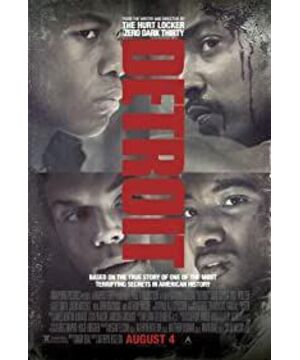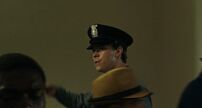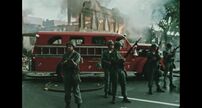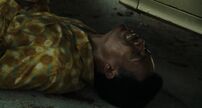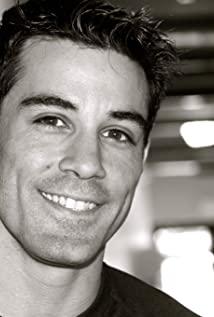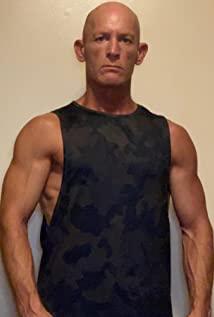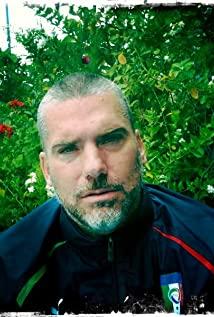The sci-fi part of the film is a virtual experience machine (enhanced version of VR) that acts on the brain. People seek stimulation or comfort through recorded discs. This has little to do with racial issues and will not be expanded here.
In the film, the racial conflict is triggered by a special event (the most influential black musician was shot and killed), followed by riots, the whole city is on alert, and black leaders make public speeches calling on black brothers and sisters to turn over and be their own in the new century Owner.
At that time, Bigelow was still shooting purely commercial films, and his handling was relatively gentle. The contradictions started and ended with events. Those who shot and killed black musicians were white police officers who were racially discriminated and abused. It was not because of partiality and suppression brought about by racial confrontation, but because of the selfishness of insiders. In the end, the representative white police chief enforced the law impartially, indicating that righteousness still exists and order is still there.
Of course, there is no wind and no waves, and the racial issue does not arise suddenly, but has always existed in daily life. In the film, this issue is not dug deeply, but is given a good vision. Heroes and heroines of different races work together and love each other, not only to solve the case, but also to gain love and gain a new life. There is nothing wrong with promoting ethnic integration and eliminating discrimination through people's own love and kindness. However, some talk on paper ignores the cruelty of reality.
In this year's "Detroit", Bigelow no longer has so many concerns, she wants to reproduce the big event that reflects the racial issue. With the Detroit riots as the background, focusing on the "Alger Motel Incident", the racial issues in "Detroit" seem to be somewhat similar to "Doomsday Tide", but the demands are very different.
From "The Hurt Locker" to "Assassination of Bin Laden" to "Detroit", Bigelow focused on documentary themes, but the films were all dramatic creations, objectively unable to know everything, and subjectively expressive. It is not strictly a documentary work. But this does not prevent its practical significance.
Detroit is neatly divided into three parts. The first part is the cause of the incident and a panoramic representation; the second part focuses on the tragedy that happened that night at the Alger Motel; and the third part is the aftermath and the impact on the people involved.
In the first part, the incident was caused by a police raid on an illegal bar. Most of the police are white, and the bar is all black and located in a black district. Against the background of serious opposition between black and white, the conflict has developed and developed into a riot. Police raids may be ill-conceived, but they are legal in themselves. On the contrary, it is illegal for blacks to destroy and loot neighborhoods by taking advantage of chaos. The shooting by the police National Guard can also be blamed on recklessness and inexperience. The only person who really showed serious racism was Klaus, the white policeman who shot the black man in the back. He is the most important character in the film, and his performance will affect the whole film throughout the whole film.
It was illegal for Krause to shoot casually (he was told he would be charged with murder), but the current chaotic lack of police presence and his own subjective distaste for blacks kept him in the action. He will be the master of the second part.
Not only did Klaus continue to violently enforce the law and kill innocents indiscriminately, his actions also influenced and showed other law enforcement officers. Some cover him or even become accomplices, some don't recognize his actions but do not stop him but choose to avoid them, and occasionally those who have trouble with conscience just secretly give him a little care. As if Klaus was the personification of authority that could not be defied, and it didn't matter how black people, weak people were treated. What does this mean? This shows that the vast majority of white law enforcement officers, facing black people, choose to support racial difference instead of justice! What's this? This is blatant racism!
In the second part, the collective racism is thoroughly demonstrated, and the atrocities are no longer individual distortions. And behind the discrimination also exposed the disparity in the power balance between whites and blacks. Can blacks get belated justice in a white-dominated society? Or is the bigger the difference the bigger the damage? !
In the third part, three black people died, and the police officers involved will be held accountable. The police, lawyers, judges, and juries are all white people. In a white court, it doesn't matter whether the witnesses are credible or whether there are loopholes in their testimony. Even the self-confession of the two policemen who feel guilty afterwards can be disregarded. A mighty evil force can devour the weak and the sympathetic. Krause's murder was not only not severely punished but was sheltered in the context of race. The misfortune of blacks, whites can not only ignore, but can even skillfully apply their rules as if nothing happened. Racial discrimination is no longer the behavior of individuals and special circumstances, but the habit of the whole society in the mainstream form. This is the heinous racism of white supremacy.
Many people say that this third part is weaker than the first two parts. This is not the lack of the film, but the director's intention. There is no confrontation with full surface tension, nor does it mean a weakening of meaning. After the deliberation and development of the previous two paragraphs, the facts of racial discrimination and the disparity in the balance of power have all been explained clearly and fully. Everything came naturally, and it was destined to be a completely defeated struggle.
Light at this time, not light at all. The feelings and thoughts left to people are so heavy.
Klaus is the representative of white racism, and the security guard is the representative of black rational moderation. But what awaits him in the end is not the judgment of his actions, but the judgment of his skin color. In a society dominated by discriminators, the discriminated cannot wait for charity. History has seen change and development, and the fight against racism will continue.
(Welcome to pay attention to the personal film review public account "Wednesday Noise" noiwed!)
View more about Detroit reviews


